Many of my clients suffer from some level of chronic, and usually systemic, inflammation when starting my program. Most of them are completely unaware of it, don’t know where to begin to feel better, and are tired of feeling awful.
Inflammation is a normal, and helpful, immune response to injury. When we get injured, get a bacterial or viral infection, cut, or sunburn, we experience pain, swelling, warmth, and redness. These are signs of inflammation arriving and the first stage of healing beginning. This is absolutely necessary and important.
Inflammation becomes a problem when it doesn’t turn off. It becomes a chronic low level physiological response. The questions then become, why does this happen, how do I know if I am suffering from systemic (chronic) inflammation, and how can I turn it off?
Signs and Symptoms of Chronic Inflammation
When we are inflamed, our bodies start crying out for help. They start to be sore and tender. This is what doctors call sub-clinical. You know something is wrong but the tests come back normal. This is the ideal time to make changes! Listen to your body. The longer we ignore the inflammation, the more intense the pain will be until it become clinical. At this point, recovery is a much longer process. Symptoms of chronic inflammation include:
- allergies (food, environmental, and other)
- bloating and gas
- heartburn and GERD
- constipation and/or diarrhea
- joint pain
- arthritis
- carpal tunnel syndrome
- heart palpitations
- autoimmune disease (any of the 80+)
- chronic fatigue
- brain fog
- fibromyalgia
- rashes
- asthma
- eczema
- neuropathy
- slowed healing and recovery from intense exercise, injury, and/or surgery
- adrenal fatigue
- hormone imbalances
- and more.
How Chronic Inflammation Starts
Chronic inflammation begins in the gut. What we eat, medications we take, environmental toxins, amount of daily movement, and stress all play a role in the environment of our microbiome (intestinal tract). (source) Let’s break these down.
Foods We Eat
Consuming high amounts of pro-inflammatory foods will irritate the intestinal lining. The longer the irritation occurs, the more likely you are to experience increased intestinal permeability (aka leaky gut). As food proteins enter the blood stream, the body goes on the attack. Unfortunately, the longer food proteins enter the body, the more inflamed the body becomes. Chronic inflammation is just one of the effects. (You can learn more about leaky gut here.)
Foods that are pro-inflammatory are:
- all grains, especially gluten/gliadin containing grains
- vegetable oils, including vegetable oil, soy, corn, safflower, canola, grapeseed
- trans fats
- highly-processed foods (think most foods in a box with a bar code)
- food sensitivities (to any food)
- fried foods
- feed-lot raised meats (commercially raised on corn and soy)
- more than 4 tsp (for women), 6 tsp (for men) of sugar consumed daily (all forms of sugar)
- all artificial sweeteners
- MSG
- preservatives and artificial food coloring
Anti-inflammatory foods include:
- All fruits and vegetables (organic when possible)
- especially dark leafy greens
- Healthy fats including:
- full fat virgin coconut products,
- avocado (fruit and oil),
- olive oil,
- butter, lard and tallow from pastured animals,
- egg yolks,
- nuts and seeds
- Meat, organs, and bones from pastured, naturally raised animals
- Fermented (probiotic rich) foods
Medications
Antibiotics, NSAIDS, steriod medication, and chemotherapy drugs all can damage the lining of the intestines in one form or another. Either by wiping out bacteria, increasing cortisol, suppressing the immune system, or degrading the actual lining. Now, these are life-saving medications in an emergency, yet are often over-prescribed.
Antibiotics wipe out all bacteria in the gut. While bad bacteria don’t need us to consume them to repopulate, the good bacteria does. Most people don’t consume probiotic rich fermented foods daily, weekly, or even monthly, leaving them at risk.
NSAIDS, non-steroidal anti-inflammatory drugs including motrin, advil and ibuprofen, have been shown to increase permeability within 24 hours after taking them.
Steroids while being an powerful anti-inflammatory, cause major damage. They suppress the immune system, increase cortisol production, and block the mechanism for mucus production in the GI tract.
Chemotherapy drugs, which are not just used for cancer by the way, degrade the intestinal barrier. I first learned about this when an elderly friend went into the hospital for stomach pain and they asked her if she’d ever had cancer. She said no, why? They said, well your intestines are melted together and we normally only see that in current or past cancer patients. (My jaw hit the floor.)
Environmental Toxins
Research has linked many environmental toxins to causing inflammation, disrupting gut bacteria, autoimmune disease, allergies, asthma, and cancer. (source) Examples of environmental toxins are:
- endocrine disrupting chemicals (EDCs), including
- BPA
- Dioxin
- Phthalates
- Fire retardants
- PFCs
- and more
- Heavy metals like mercury and lead
- Diesel exhaust
- Chemicals in cleaning products including:
- synthetic pesticides and herbicides
- Perchloroethylene, used in dry cleaning products
- Triclosan, used in antibacterial products
- and more.
- Chlorine
- Harmful chemicals in body products including:
- Formaldehyde
- Benzophenone
- Acrylates
- PABA
- Phenoxyethanol
- And more.
It is always best to minimize exposure to these chemicals and the many more out there. Making your own homemade cleanings products (Groom and Style has a great resource here), making sure to air out your home, switching to organic body products, and switching to stainless steel and cast iron cleaning cookware are a great place to start in reducing your toxic load.
Lifestyle
There are several lifestyle factors that play a role in chronic inflammation. Three of the biggest factors are amount of exercise, stress level, and quality and quantity of sleep.
Exercise
Being sedentary causes inflammation in the body because we need to move. Movement cleanses our lymph system, carries nutrients to the body, reduces cortisol, and does so much. We need to move. However, on the flip side, overexercising will also cause inflammation. It’s all about balance. I recommend restorative exercise modalities like restorative yoga (no hot yoga), tai chi, walking, and pilates to start moving. Once inflammation is under control then I would recommend increasing intensity to your threshold. What that looks like will vary person to person.
Chronic Stress
Chronic, aka long term, stress like a job, unhealthy relationship, parenting with minimal or no support, and other long term stresses will wreak havoc on our bodies. We all know this. It also causes chronic inflammation or prevents inflammation from reducing. No matter how healthy you are, if you don’t get your stress under control, you aren’t going to feel better. Period. There’s no one right way to reduce stress. Exploring what works for you is important, but make sure you do it. It’s the only way you’re going to feel better.
Sleep
Sleep, oh sleep, how I miss thee. So many of us aren’t able to get enough sleep or good quality sleep. Sleep is restorative. It’s when our bodies are suppose to be able to clean things up and heal. If we aren’t able to fall into a deep sleep due to too much light, an overly warm room, uncomfortable mattress, children, elderly parents, noisy neighbors, nutritional deficiencies or whatever reason, our bodies are going to be stressed out. Stressed out bodies equals inflammation. Remember, inflammation is our bodies trying to protect us. Do what you need to do to get some sleep. Go to bed earlier, replace your mattress, turn down the ac, get black out curtains, change your work schedule if possible, take turns with the kids so you know you can get sleep a few nights per week, whatever you need to do. Do it!
Remedies
Along with partnering with your practitioner (highly recommend making it a functional medicine or naturpathic doctor), here are my top 10 remedies for aiding in relieving chronic inflammation.
Vitamin D
Most people are deficient in vitamin D. In fact, in my practice I’ve never had a client who had a vitamin D level in the ideal range of 50-70. In fact, most people have been in the teens. This is dangerous and causes inflammation. Being out in the sun isn’t enough usually. I strongly recommend getting your numbers checked and talking with your practitioner about how to get your number in the ideal range if it is low. My favorite vitamin D supplement is Jarrow.
Omega 3’s
Omega 3’s are powerful antioxidants that are severely deficient in the Standard American Diet. Eating an anti-inflammatory diet is a good start. However, if you’re inflammed you’ll need a therapeutic dosage from a quality (not racid) product. To find out the right dose for you, please see your functional medicine or naturopathic physician. Barlean’s is a brand I like.
Probiotics
Good bacteria (i.e., probiotics) are not something that just happen to live in us. We have to consume them daily. Probiotic supplements from Wal-Mart, CVS, or Walgreens are usually not alive thus, you’re throwing money away. You want to take at least 30 billion from a product that is alive, or from fermented foods like kombucha, homemade sauerkraut/pickles/veggies, or yogurt. Learn more about probiotics here.
Bone broth
Bone broth is a simple way to get important nutrients like glucosamine, chondroitin, glycine, collagen, proline, and gelatin. Gelatin plays a crucial role in healing the intestinal lining. Learn more about bone broth here.
L-glutamine
This essential amino acid is needed in large amounts by the body. L-glutamine helps with many functions in the body, but I’m going to focus on it’s role in healing the digestive system. The small intestine uses L-glutamine as it’s major fuel source. Supplementing with this amino acid has been shown to relieve symptoms of any digestive related disorder including ulcerative colitis, Crohn’s, celiac, ulcers, leaky gut, and IBS, as well as improving immune function. Learn more about L-glutamine.
Turmeric
With over 700 studies on this amazing root, turmeric has been found to outperform many pharmaceutical drugs with virtually no adverse side effects. It is a powerful anti-inflammatory that reduces pain, swelling, and inflammation in the body. It has been linked to helping treat Alzheimer’s disease, Parkinson’s disease, MS, allergies, asthma, rheumatoid arthritis, psoriasis, diabetes, and many more.
Cherry juice
Cherry juice is long known for being anti-inflammatory and recent studies have found it to decrease the level of C-reactive protein, the biomarker for inflammation, in the body. Not only is it anti-inflammatory, cherry juice is rich in antioxidants and even contains melatonin. So if you struggle with sleep, some cherry juice in the evening could help you sleep better at night. (source)
Aloe Vera
Widely known for helping with a sunburn, it also helps relieve digestive inflammation. Along with being anti-inflammatory, it also helps relieve constipation and diarrhea, helps with candida overgrowth, and balances the body’s pH. Learn more.
Rest
I talked about sleep in the section above, but this is about rest. When we are inflamed, our bodies need time to heal. Filling up every moment of our day with activities until we fall into bed exhausted is not going to help us heal. Say no to non-essential activities and relax at home.
Do you have any other remedies you’d like to share? Leave a comment below!
Sources:
http://www.heartspring.net/leaky_gut_syndrome_treatments.html
http://capitaldistrictvitalitycenter.com/blog/2014/01/medications-that-cause-leaky-gut/
http://www.functionalmedicineuniversity.com/public/Leaky-Gut.cfm
http://www.nature.com/nature/journal/v453/n7191/abs/nature06881.html
http://www.cell.com/cell/abstract/S0092-8674(06)00191-7
8 Hidden Toxins: What’s Lurking In Your Cleaning Products?
http://www.ideafit.com/fitness-library/exercise-inflammation-process
http://www.hindawi.com/journals/mi/2003/807126/abs/

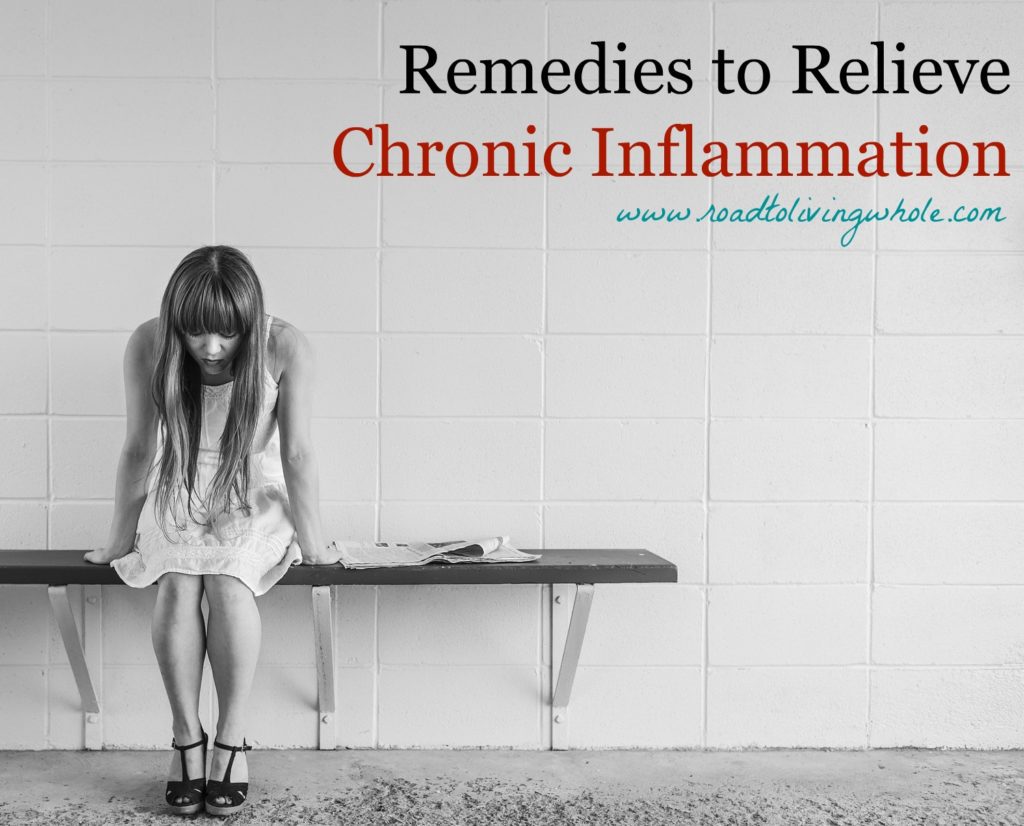

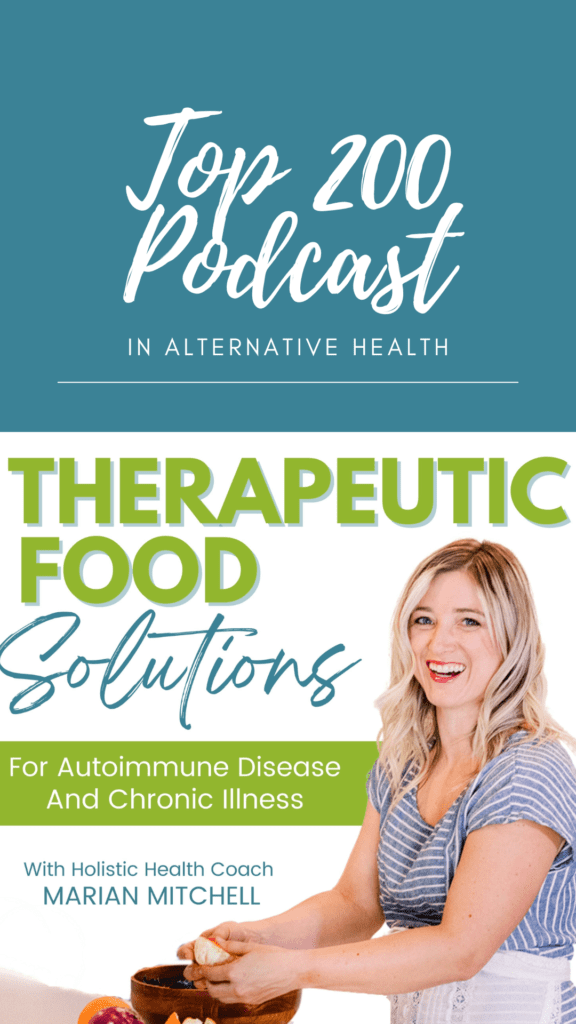
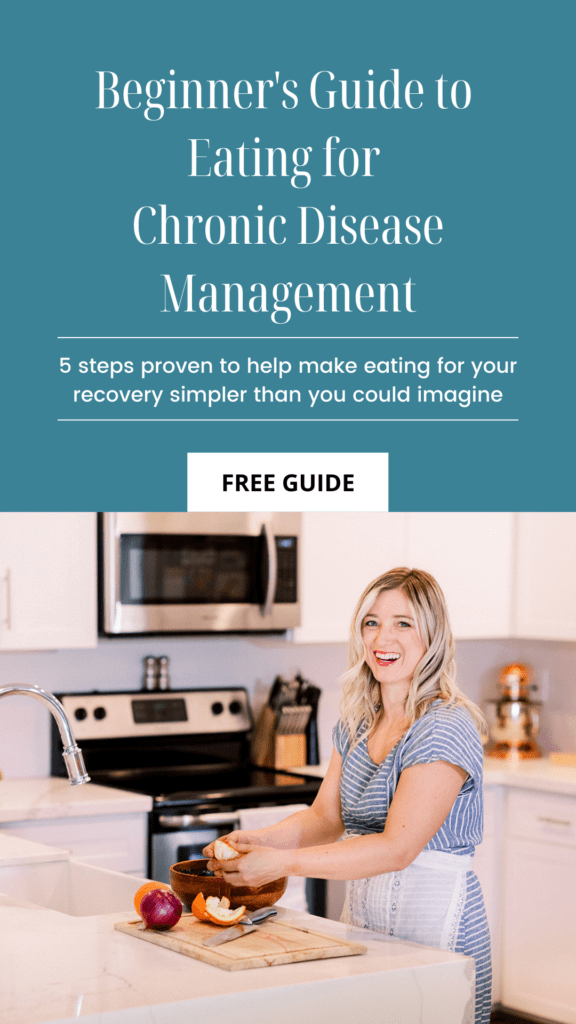

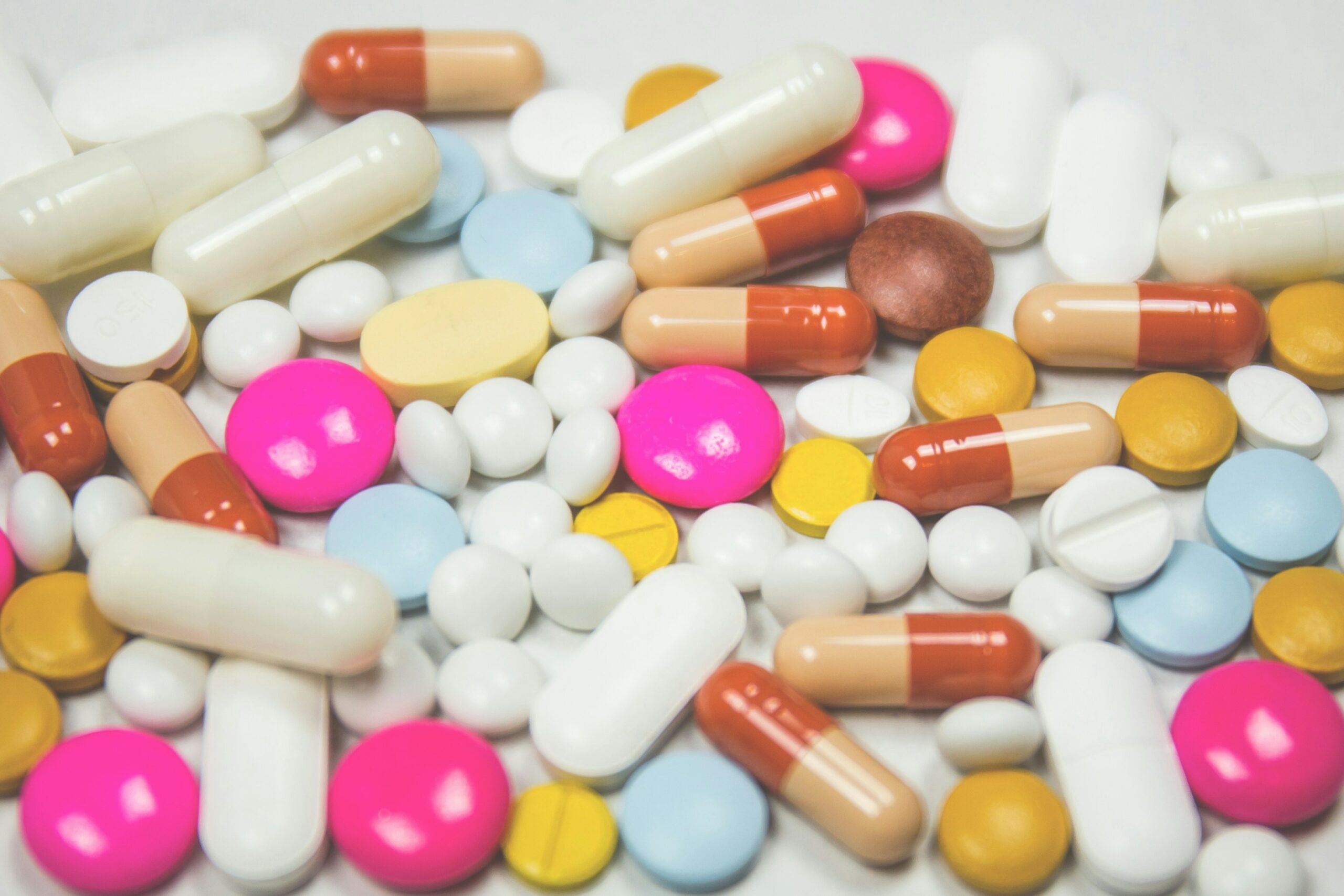


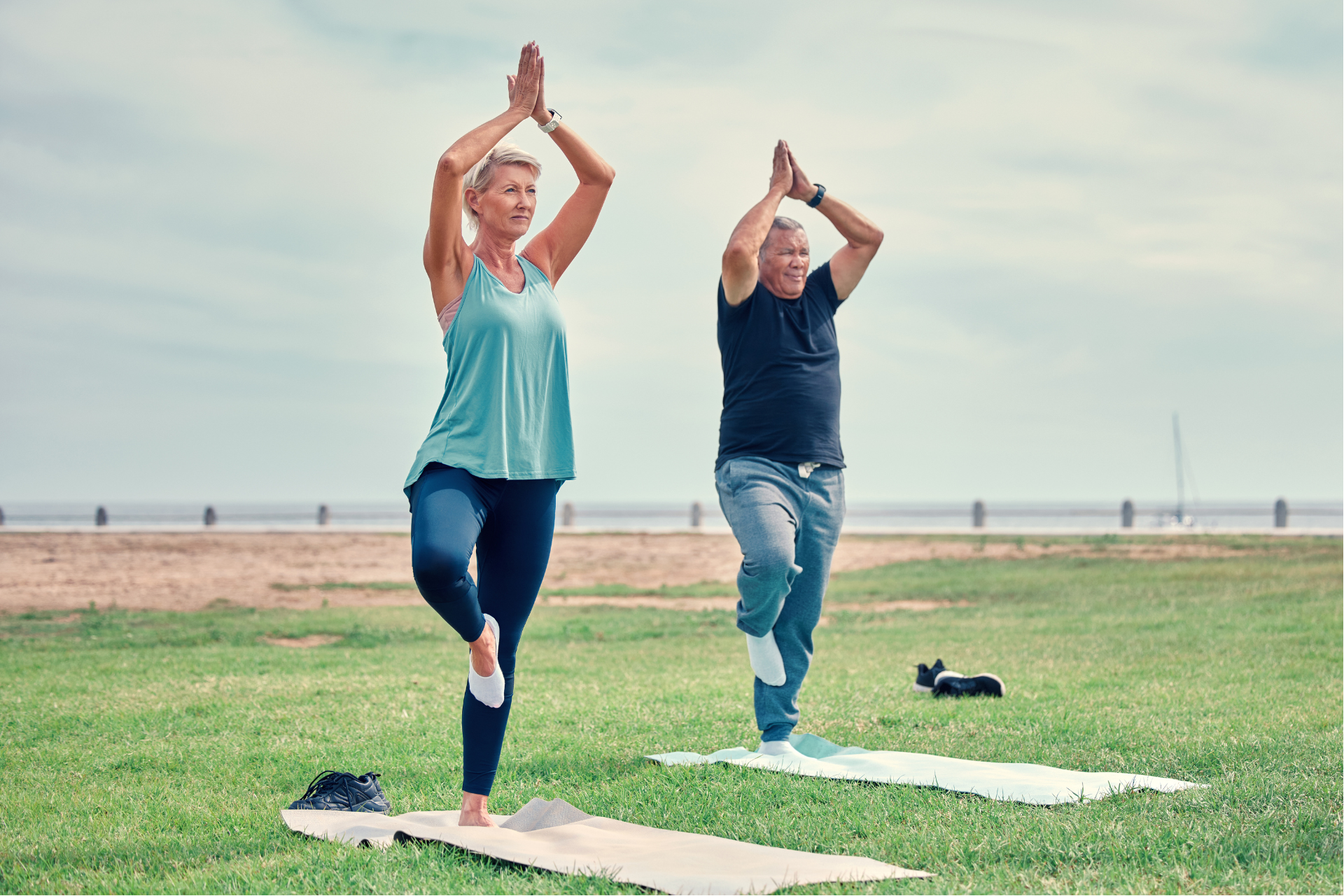
4 thoughts on “Remedies To Relieve Chronic Inflammation”
Fantastic, straight forward summary of inflammation, the causes and remedies. I am currently reading a book on how gut microbiota affects inflammation and how it all interlinks, so this is great timing!
It’s a very dense subject. What book are you reading Bettina?
Awesome. So true – and so many people have problems with inflammation and are so unaware. I am going to share with a few of those people!!
Thank you for the great lists of foods to try to relieve chronic inflammation.